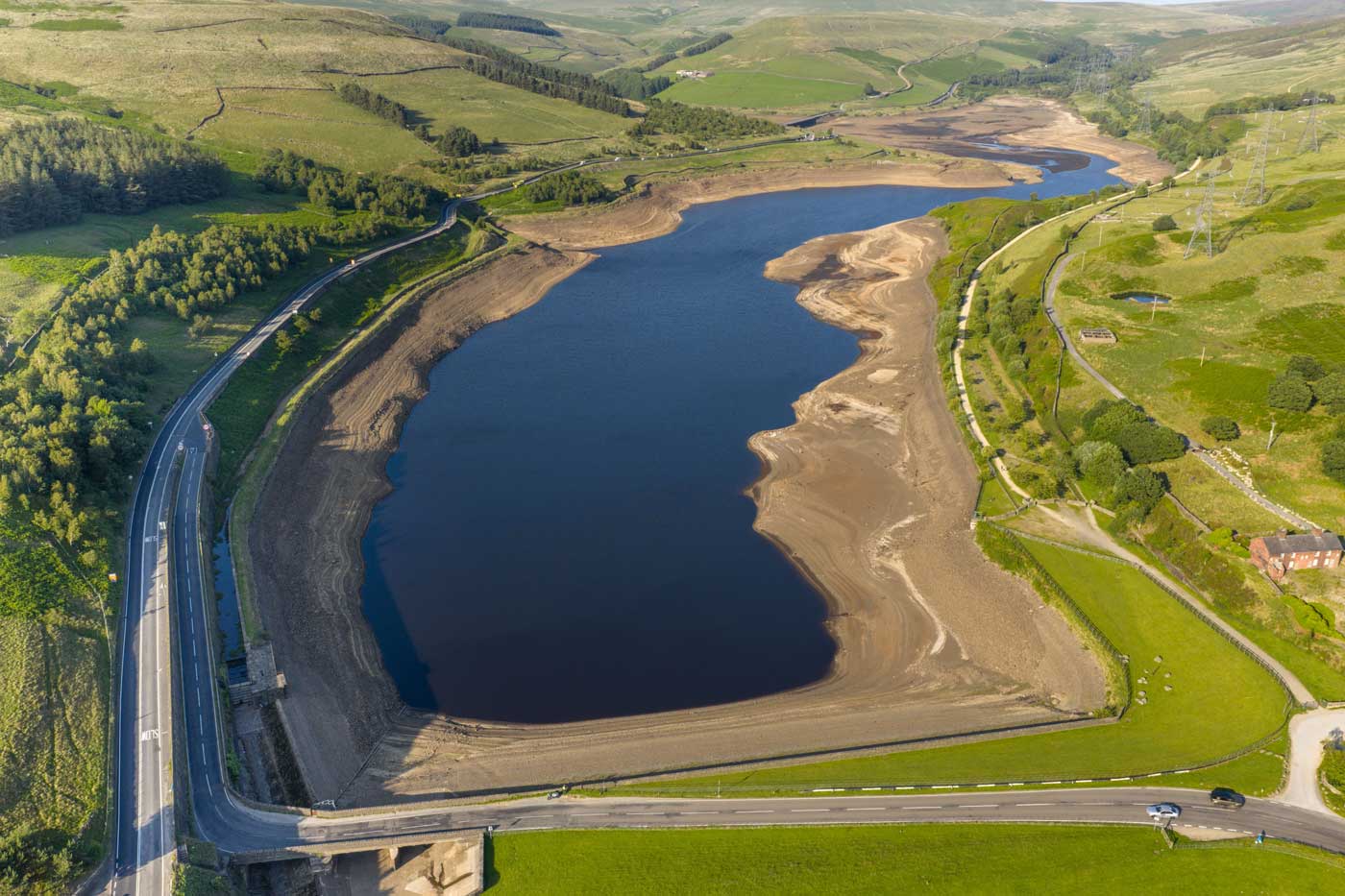
In 2025, the UK experienced the driest spring on record. This was followed by the hottest June on record, which has seen water usage increase and water reserves diminish.
As the volume of water stored in reservoirs gets low, water wholesalers work with Ofwat, the Environment Agency and DEFRA (the Department for Environment, Food and Rural Affairs) collaborate to determine whether drought plans need to be actioned and hosepipe bans implemented.
In July 2025, some areas have already announced hosepipe bans (Temporary Use Bans or TUBs).
More dry weather is forecast for August, making it critically important that businesses and households do what they can to conserve water reserves. Businesses account for around 30% of the UK water consumption, so using water wisely not only saves you money but also helps keep the water flowing for everyone.
Our advice
At Everflow, we will always communicate with our customers when any restrictions come into force in your area. Please ensure that your contact details are up-to-date in our Customer Portal to avoid missing any supply updates that may be relevant to you. For those organisations not yet with Everflow, we will help you to stay informed and keep you advised of best practice throughout periods of water shortage when you switch to us.
This summer hosepipe bans are mainly affecting people at home. But businesses in affected areas are only currently allowed to use hoses if directly related to their business activity. For example:
- Not using hoses and sprinklers on flowers, gardens and green spaces (unless you’re a garden centre or equivalent)
- Not using a hosepipe for non-essential needs, like cleaning a path outside your business (except for health and safety reasons)
- Not cleaning private vehicles like company cars and vans (unless you’re a car wash)
- Not filling or topping up an ornamental fountain (except for religious reasons).
The next step is Non-Essential Use Bans (NEUBs), which affect more businesses because they ban businesses from using water for:
- Watering outdoor plants
- Filling or maintaining swimming or paddling pools or ponds
- Washing vehicles with pressure washers or car washes
- Cleaning any vehicle, boat, aircraft or train stock
- Cleaning premises
- Cleaning windows
- Cleaning industrial plant
- Suppressing dust
- Operating cisterns in empty buildings.
You can help avoid the need for further restrictions on water use with these simple tips:
- Check for leaks. A quarter of the water businesses use is wasted unintentionally from leaking toilet cisterns, animal drinking troughs, dripping taps and showers, or poorly controlled urinal flushing. The underground pipes between your meter and your buildings may also be leaky.
- Send us meter readings at least monthly to help us spot when you’re using a lot more water than usual. In return, we’ll send you free alerts so you know when to find and fix leaks to avoid a high bill.
- If you are lucky enough to have a smart water meter, we’re already working with water companies to analyse your data to spot leaks. For example, if water’s being used continuously 24/7. Every business should get a smart water meter in the next 10 years.
- In the meantime, if you’re struggling to read your meter frequently enough, try one of our smart water loggers.
- Where possible, avoid using water at peak times. This helps avoid low pressure.
- Avoid using water for non-essential activities like:
- Watering gardens (lawns are fine to go brown – they bounce back)
- Cleaning a path (unless for health and safety)
- Cleaning company cars and vans (you may still need to clean windscreens, windows, lights, indicators and number plates to comply with the highway code )
- Filling up fountains.
For more help and guidance on how to use less water, take a look at our water saving tips.
You can also book a site visit with our Eco M.O.T.s which are completely free in some areas.

Contact Everflow today!
At Everflow, our goal is to make your utilities simpler – we ensure you get great-value contracts that are tailored to your needs and easy to manage. Get a bespoke quote using the link below.


